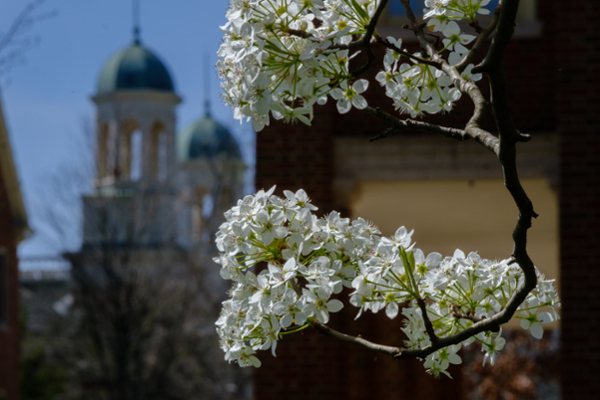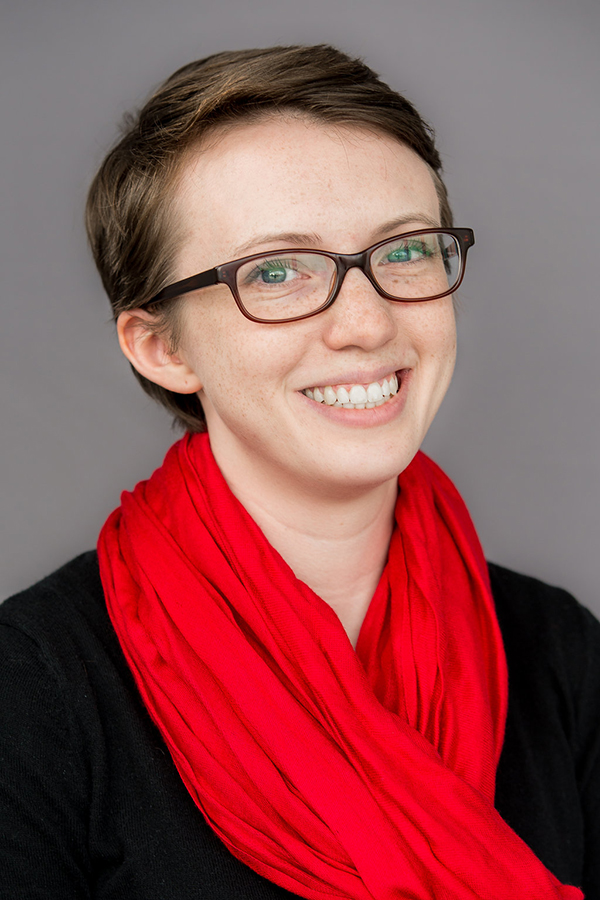New research shows Facebook algorithm change may have helped boost visibility and engagement to local Republican parties across U.S.
Political scientists Anne Whitesell and Kevin Reuning from Miami and Lee Hannah from Wright State did the research and led undergraduate students in gathering information on the thousands of local parties in the United States

New research shows Facebook algorithm change may have helped boost visibility and engagement to local Republican parties across U.S.
Interview by Margo Rutledge Kissell, University Communications and Marketing
A Facebook algorithm change may have helped boost visibility and engagement to county-level Republican parties across the United States starting in 2018, according to new research by Miami University and Wright State University faculty.
Kevin Reuning and Anne Whitesell, assistant professors of Political Science at Miami who worked with Lee Hannah, an associate professor of Political Science at Wright State, published the research in the journal Research & Politics on Wednesday.
What is the major finding of your research?
In the fall of 2018, local Republican parties began to receive substantially more likes, comments and shares on their Facebook posts compared to local Democratic parties. This change from the previous years impacted a large number of local Republican parties and seems to line up with what is known about changes made to the Facebook algorithm during this time.
From January 1 to June 30, 2019, local Republican parties had their posts shared 1,684,586 times — twice as often as local Democratic parties’ posts were shared (800,659 times). Over the same 6 months in 2018, Democratic parties had their posts shared almost 50% more than Republicans (222,297 and 150,862 shares respectively).
What made you want to take a closer look at this?
 Prior political science research shows that Facebook, and social media more generally, can be important in shaping people’s political views and behavior. In the summer of 2020, we decided to start studying how local political parties use social media and discovered that after years of local Democrats and Republicans having similar interactions on Facebook, there was a sudden unexplained change that seemed interesting.
Prior political science research shows that Facebook, and social media more generally, can be important in shaping people’s political views and behavior. In the summer of 2020, we decided to start studying how local political parties use social media and discovered that after years of local Democrats and Republicans having similar interactions on Facebook, there was a sudden unexplained change that seemed interesting.
Reuning (pictured on right) said: We used a model to estimate when the change in interaction happened and found that it lined up (fall 2018) with information that was revealed in the 2021 leaks from Facebook. Because Facebook is not transparent about their algorithm, we cannot directly identify how any changes may have impacted local parties, only that their interactions with them changed across hundreds of local parties around the country.
How were students involved in the research process?
 Reuning and Whitesell (pictured on left) said two undergraduate students from Miami and two from Wright State worked to gather information on the thousands of local parties in the United States. They compiled a database of the social media accounts and contact information for local parties across the United States.
Reuning and Whitesell (pictured on left) said two undergraduate students from Miami and two from Wright State worked to gather information on the thousands of local parties in the United States. They compiled a database of the social media accounts and contact information for local parties across the United States.
What’s the key takeaway?
Most of us use social media to get our news or keep in touch with family and friends, but we do not often think about the underlying infrastructure that shapes how we receive that information.
Social media algorithms are designed to show you content that will keep you engaged and will confirm your existing biases, which means we often just end up seeing content that we agree with. We should all be cognizant of that.